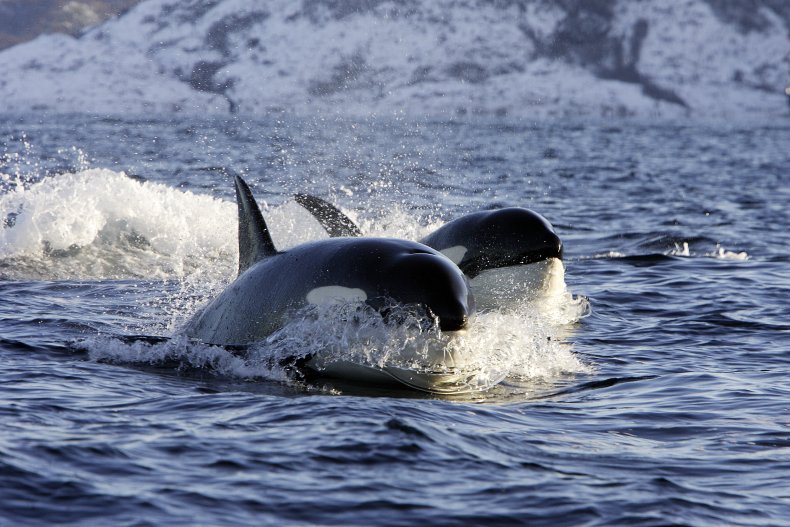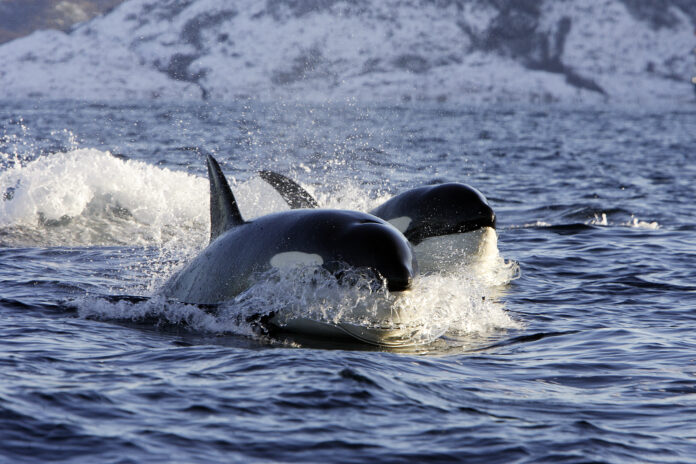Orcas keep slamming into boats off the Spanish coast, sinking some of them, leading researchers to believe they might be driven by a single revenge-bent female.
Three boats have been struck over the past few weeks in the Strait of Gibraltar, sinking two of them. The most recent attack occurred on May 4, and involved three orcas, eventually leading to the yacht sinking.
Researchers think that these increasing attacks may be due to the influence of a single female orca named White Gladis, who initiated the attacks. She may have caused the other orcas to learn from her behavior and follow suit.
ISTOCK / GETTY IMAGES PLUS
Previous attacks on boats have been occurring in the area since around 2020, but are increasing in frequency, as reported by a 2022 study in the journal Marine Mammal Science.
“The orcas are doing this on purpose, of course, we don’t know the origin or the motivation, but defensive behavior based on trauma, as the origin of all this, gains more strength for us every day,” Alfredo López Fernandez, a biologist at the University of Aveiro in Portugal and a representative of the Grupo de Trabajo Orca Atlántica (Atlantic Orca Working Group), told LiveScience.
López Fernandez suggested that White Gladis may have been traumatized by a boat in some manner, by a collision or perhaps entanglement with a fishing boat, leading to her lashing out at yachts.
“That traumatized orca is the one that started this behavior of physical contact with the boat,” López Fernandez said.
The other orcas may be copying her, inspiring the sudden spike in attacks. Orcas are incredibly social animals, often copying and learning behaviors from each other.
They are highly intelligent, living in large groups of between 10 and 20, with a complicated social matriarchy led by the eldest females. These older females usually live to around 50 years old, but sometimes for up to 80 years.
According to an article in the Conversation, written by Luke Rendell, a sea mammal expert at the University of St. Andrews in the U.K., orcas have been observed on multiple occasions swapping strange behaviors, from useful hunting tactics to short-term fads like carrying dead salmon on their heads.
“This is indeed quite unusual behavior, but these are intelligent animals, and they are capable of extensive play and also learned behavior,” Kerstin Bilgmann, a conservation biologist and research fellow at Macquarie University in Australia, previously told Newsweek. “In the past, killer whales have, for example, worked in [cooperation] with humans on boats to hunt other whales during the whaling era.”

ISTOCK / GETTY IMAGES PLUS
While it’s possible the orcas in pods have learned to attack vessels from their traumatized friend, the attacks may just be random, or even playful.
“This is quite unusual behavior that may have been coincidentally started by one animal in the pod and then copied by the other pod members. It is important to remember that this is most likely a playful act with no bad intention by the killer whales as no humans were attacked in any of the cases,” Bilgmann said. “Cooperative play is quite common in this species and a whale would not be aware of that a sinking ship is a danger to human’s lives. Continued protection of the pod and the species should be the priority, while also managing the interactions in a way that does not cause any harm to humans or the whales.”
In these spates of attacks off the Iberian coast, the orcas usually attack the rudder of the boat, but tend to abandon the attack after the boat has stopped moving.
David Lusseau, a professor of marine sustainability at the Technical University of Denmark, previously told Newsweek: “The individual whales seem to engage in the same pattern of attack, focusing on the rudder which can lead to the vessels being immobilized.”
Despite the recent sinkings, the majority of orca encounters have been harmless, leaving the ships and passengers unscathed.
“In more than 500 interaction events recorded since 2020 there are three sunken ships. We estimate that killer whales only touch one ship out of every hundred that sail through a location,” López Fernandez told LiveScience.
Do you have an animal or nature story to share with Newsweek? Do you have a question about orca attacks? Let us know via [email protected].


